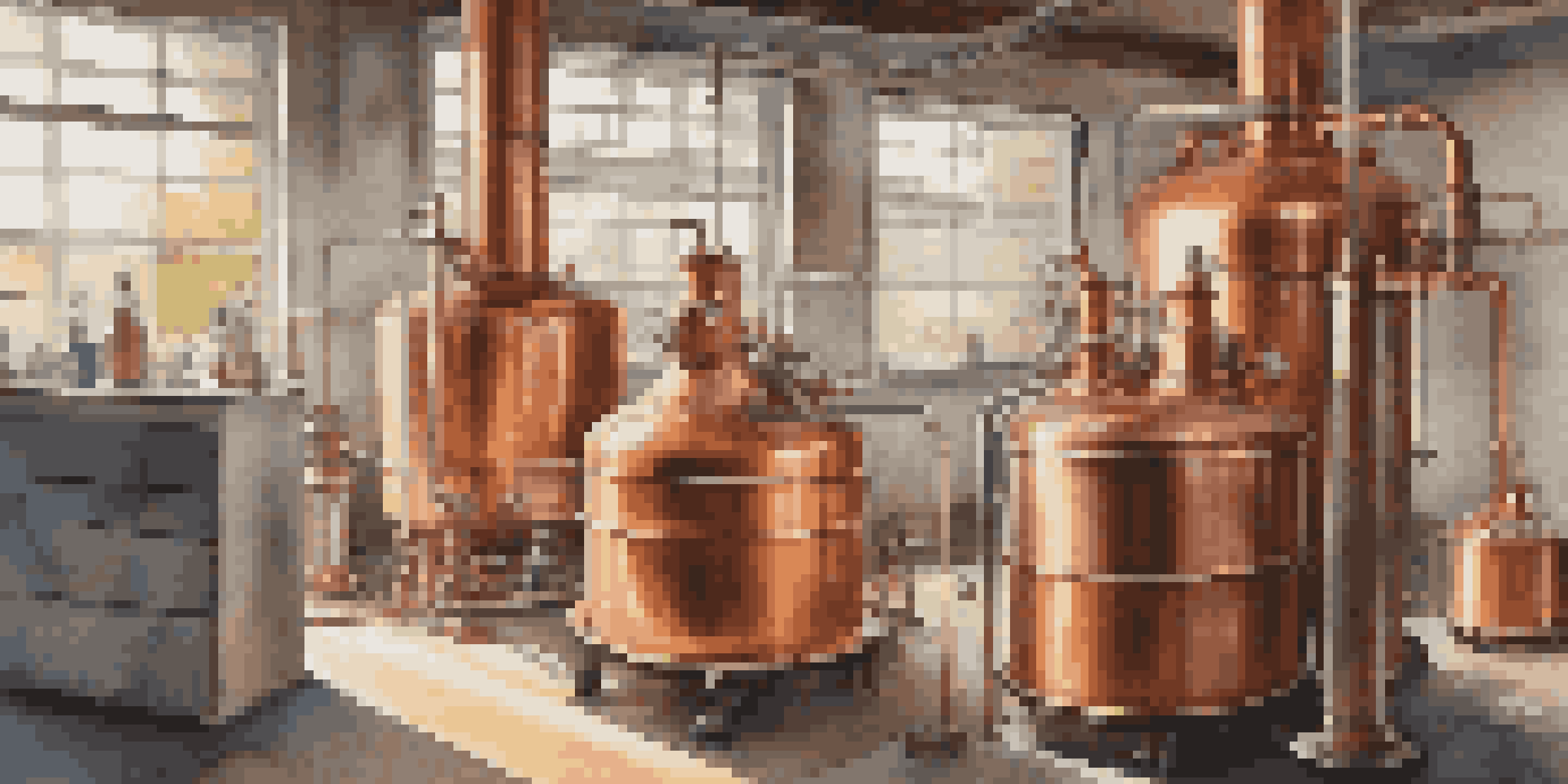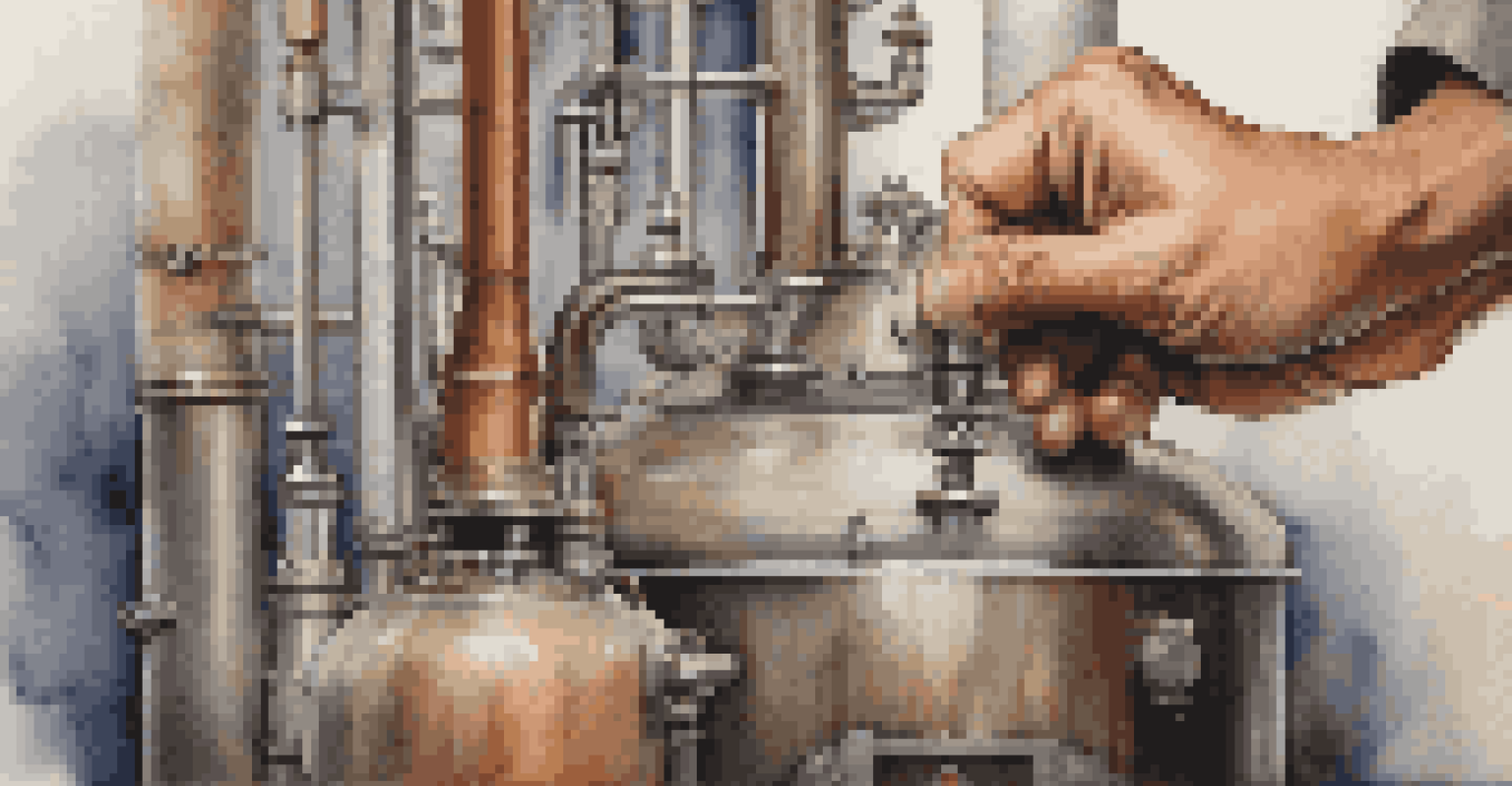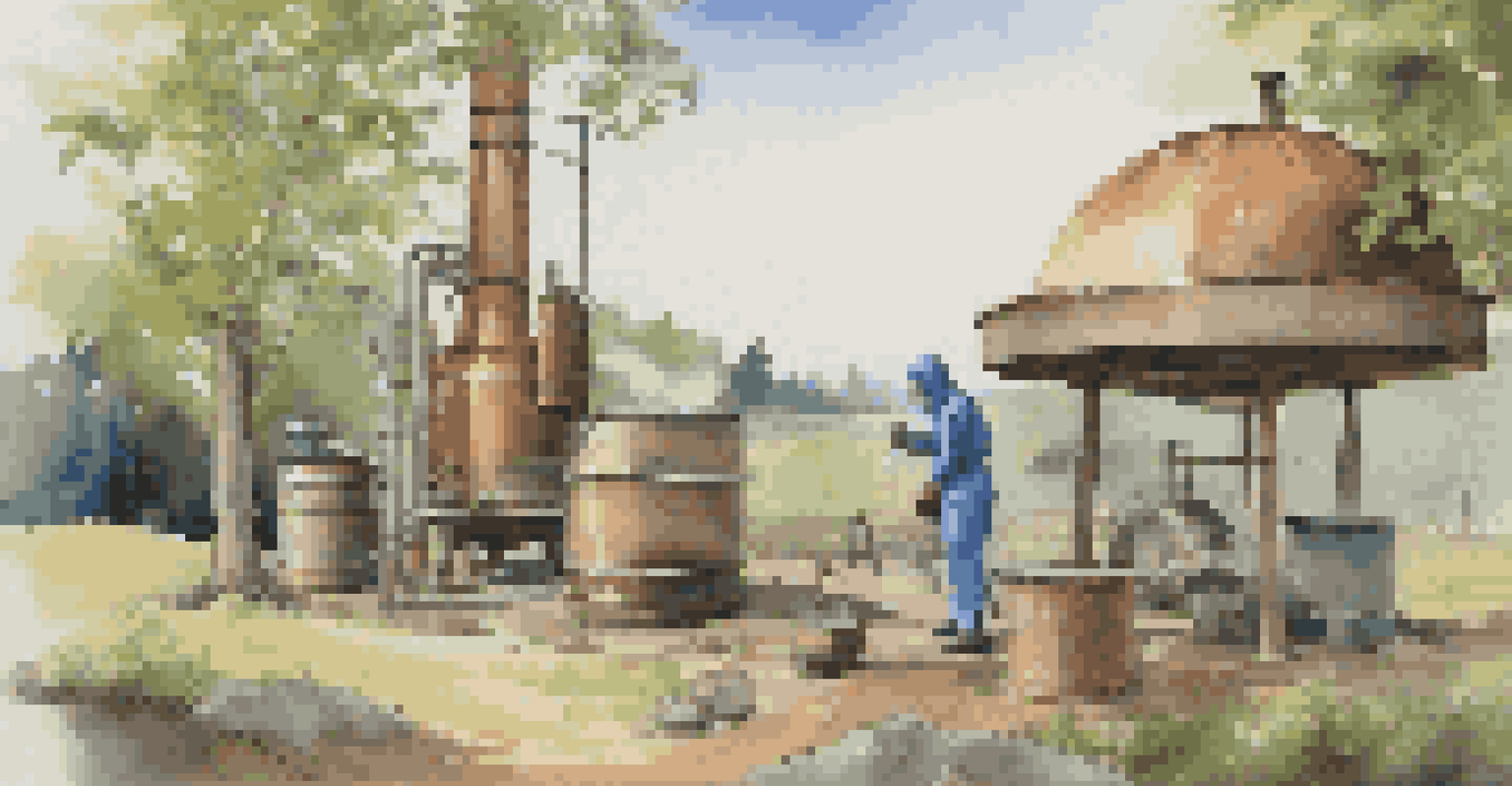Safety Tips for Operating Your Home Distillation Still

Understand Your Distillation Equipment Before Use
Before starting any distillation process, it's crucial to familiarize yourself with your equipment. Each still has unique components and functions that you need to understand to operate safely. Take the time to read the manufacturer's manual thoroughly, as it often contains specific safety instructions and operational guidelines.
Safety isn't just a slogan, it's a way of life.
Think of your still like a car; you wouldn’t drive without knowing the controls and features. Knowing how to operate your still not only ensures efficiency but also minimizes the risk of accidents. If you encounter unfamiliar terms or processes, don't hesitate to look them up or reach out to more experienced distillers.
Being well-informed about your equipment sets the foundation for safe practices. Additionally, regular maintenance checks can help you spot potential issues before they lead to hazardous situations.
Choose the Right Location for Distillation
The location where you set up your still can significantly impact safety. Ideally, you should distill in a well-ventilated area, away from flammable materials and direct sunlight. A garage or outdoor space often makes a suitable choice, as it reduces the risk of fire and allows for better airflow.

Imagine trying to cook over an open flame in a cramped kitchen filled with clutter; it’s not just uncomfortable, it's dangerous. Similarly, ensuring your distillation area is clear and spacious can prevent accidents. Make sure to keep flammable items like paper, cloth, or even certain liquids far from your setup.
Know Your Equipment Well
Familiarizing yourself with your distillation equipment ensures safe and efficient operation.
Additionally, having access to water and a fire extinguisher nearby can provide peace of mind. Emergencies can happen, so being prepared is half the battle.
Monitor Temperature and Pressure Carefully
Temperature and pressure control are crucial during distillation, as fluctuations can lead to unsafe conditions. Use reliable thermometers and pressure gauges to keep an eye on these metrics throughout the process. If you notice any irregularities, it's essential to act quickly to prevent accidents.
An ounce of prevention is worth a pound of cure.
Think of this like riding a roller coaster; you need to know when things are speeding up or slowing down. If the temperature rises too high or pressure builds up, it could lead to a dangerous situation. Always err on the side of caution by adjusting your heat source as needed.
In addition, some stills come equipped with safety features that can automatically shut down operations if temperatures exceed safe limits. Familiarize yourself with these features and make sure they are functioning correctly before you begin.
Avoid Distilling Alone Whenever Possible
Having a buddy system while distilling can greatly enhance safety. If you run into trouble or need assistance, having someone nearby can make all the difference. It's not just about sharing the workload; it's about ensuring there’s someone to help if an emergency arises.
Picture hiking in a remote area alone versus with a friend; having a companion can provide support and security. Similarly, distilling with a partner allows for shared vigilance, making it easier to spot potential hazards or mistakes. Plus, it can turn the process into a fun and educational experience.
Prioritize Safety in Location
Setting up your still in a well-ventilated area away from hazards significantly enhances safety.
If you must distill alone, make sure someone knows your plans and check-in regularly. This simple step could be invaluable in case you need help.
Wear Appropriate Safety Gear While Distilling
Safety gear is not just for professionals; it's essential for home distillers too. Wearing protective clothing such as gloves, goggles, and long sleeves can help shield you from burns, splashes, and other potential hazards. It’s a small extra step that could save you from a painful accident.
Consider the importance of safety gear like a seatbelt while driving; it’s there to protect you in case of unexpected events. In distillation, goggles protect your eyes from harmful vapors, while gloves keep your hands safe from hot surfaces and liquids. Make it a habit to wear this gear every time you distill.
Also, ensure your workspace is clean and free from clutter to avoid tripping hazards while wearing your gear. A tidy environment complements your safety measures and keeps you focused on the task at hand.
Be Aware of Your Surroundings During Distillation
Staying aware of your surroundings is vital when operating a distillation still. Make sure that pets, children, and anyone who isn't involved in the process are kept at a safe distance. Distractions can lead to accidents, so it’s best to maintain a clear area around your distillation setup.
Think of it like cooking in a busy kitchen; if too many people are around, it increases the risk of spills or burns. The same principle applies to distillation; a focused environment is key to safe operations. Establish a clear boundary to ensure that no one inadvertently wanders into a potentially dangerous situation.
Stay Informed on Legalities
Understanding local laws regarding home distillation helps avoid legal issues and promotes responsible practices.
Additionally, being mindful of any changes in your environment, such as changing weather conditions, can also enhance safety. For instance, if you’re distilling outdoors, sudden rain could create slippery surfaces or other hazards.
Know the Laws and Regulations of Home Distillation
Before diving into home distillation, it’s crucial to understand the legalities involved. In many places, distilling alcohol without proper permits can lead to legal consequences. Take the time to research your local laws regarding home distillation to avoid any unwanted surprises.
Think of it like being a gardener; you wouldn’t plant in a space where it’s prohibited. Similarly, knowing the regulations surrounding distillation can save you from facing fines or legal action. Be sure to stay informed about any changes in laws as well, as they can evolve.

Additionally, joining local distilling groups or forums can help you stay updated on best practices and regulations. Engaging with the community can not only educate you but also connect you with others who share your passion.